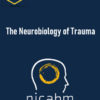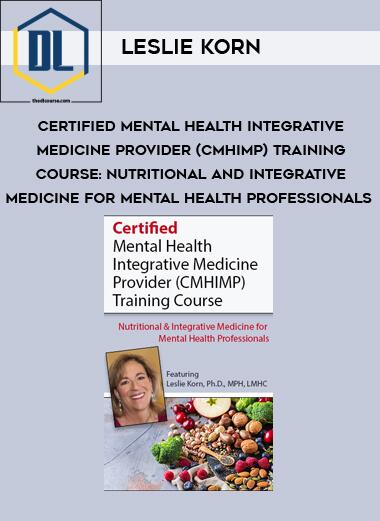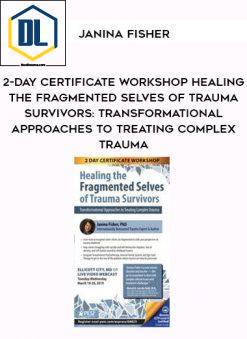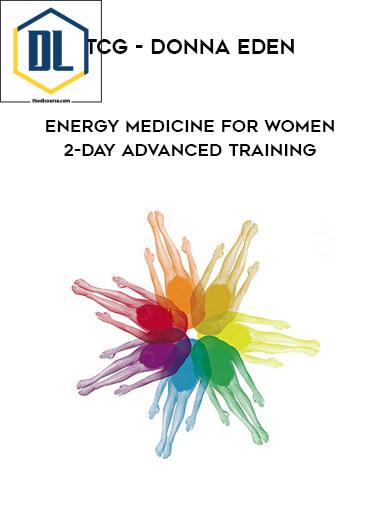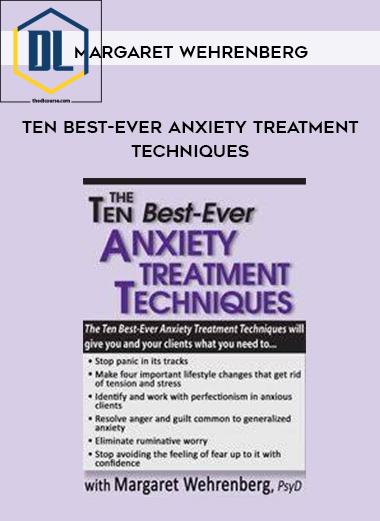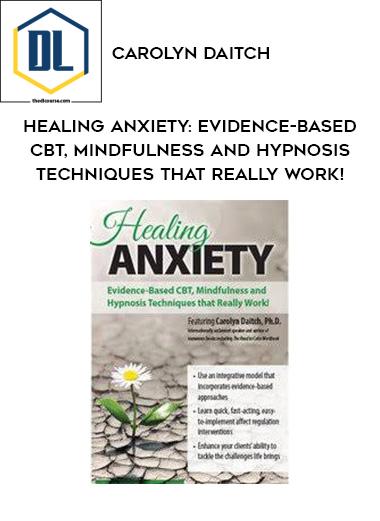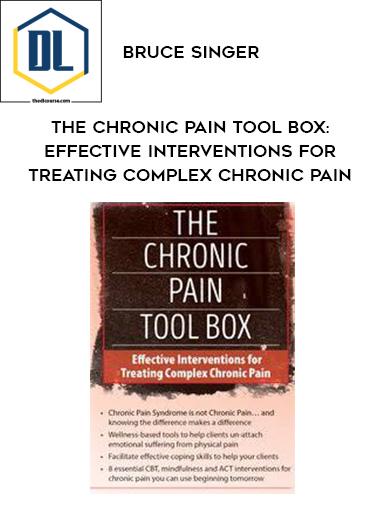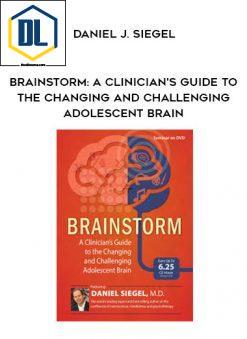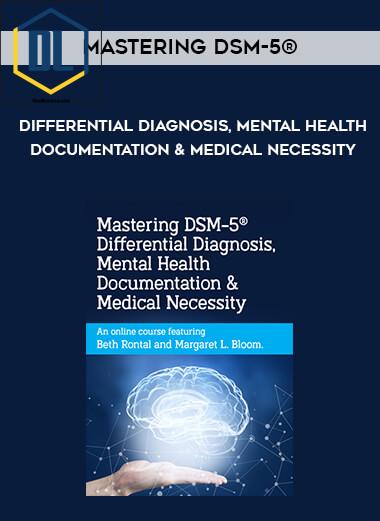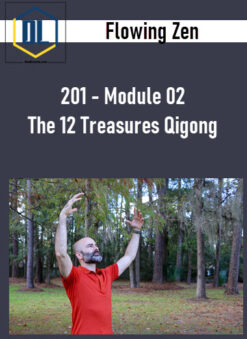Certified Mental Health Integrative Medicine Provider (CMHIMP) Training Course: Nutritional and Integrative Medicine for Mental Health Professionals – Leslie Korn
$199.99 $55.00
Product Delivery : Instant Deliver
Description
Certified Mental Health Integrative Medicine Provider (CMHIMP) Training Course: Nutritional and Integrative Medicine for Mental Health Professionals – Leslie Korn
Clients who are eager to reduce frustrating symptoms caused by anxiety, depression, ADHD, and other mental health disorders often turn to holistic approaches like diet and nutrition to help ease their symptoms.
Many clients self-prescribing based on information obtained on the Internet or their friends. And while many of these clinical methods have few negative side effects, some herbal supplements, juice fasts, and other apparently healthy activities can have significant adverse outcomes if not tailored to the individual’s psychobiology.
As a clinician, it can be intimidating when clients start asking you for guidance on how to use nutrition to improve their well-being. Suddenly you find yourself thinking “I’m not a nutritional therapist, I’m not trained for that!” And, “What am I allowed to do, ethically?”
…but it doesn’t have to be hard or complicated.
That’s why I created this exclusive, online certificate training designed to be your practical guide through the complex relationship between what we eat and the way we think, feel, and interact with the world.
Join me today and I’ll provide you safe, effective and affordable evidence-based holistic approaches that will help your clients achieve optimal health and wellness while preventing and treating common mental health problems.
From anxiety and depression to schizophrenia and PTSD, you’ll discover how nutritional and integrative medicine can work alongside and even replace medications to alleviate symptoms and support mental health.
You’ll end this course with your Certificate in Nutritional and Integrative Medicine for Mental Health and be fully prepared to start providing your clients personalized care from an array of scientific disciplines proven to improve their mood and mental health.
Bonus! Now you can become a Certified Mental Health Integrative Medicine Provider (CMHIMP). Complete this online certificate course to fulfill the educational requirements you need to advance your career. Learn more below…“The doctor of the future will give no medication, but will interest his patients in the care of the human frame, diet and in the cause and prevention of disease.” – Thomas A. Edison
Here’s what you’ll learn in this certificate training…
- Improve mood and behavior using micro- and macronutrients
- Ideas for practical, affordable, and individualized diets along with optimal cooking methods and recipes
- Safely and ethically use integrated and nutritional medicine within your professional discipline’s scope of practice
- Improve assessment by learning to differentiate between a clinical presentation of mental illnesses vs. nutritional and/or hormonal imbalances
- Customize treatment plans through six unique nutritional methods for clients with mood lability
- Nourish both the brain and the gut, the “second brain,” through key nutrients
- Learn to identify gluten and casein sensitivity with the presentation of depression, psychosis, and ASD in clients
- Implement evidence-based protocols for nutritional and herbal approaches for six DSM-5™ categories
- Evaluate how client eating patterns may influence their mental health by using a food-mood assessment tool
- Increase compliance by using the DSM-5 Cultural Formulation tool to inform your treatment planning process
- Prevent side effects of polymedicine use through evaluation of drug-nutrient-herbal interactions
- Decrease dissociative symptoms in clients through stage-specific anaerobic and aerobic exercise and self-care methods
- Improve focus for clients with anxiety disorderswith breathing techniques to reduce hyperventilation
- Adapt complementary and alternative methods for children and teens with behavioral and mental health disorders such as ADHD and ODD
- Learn when psychotropic medications, herbal medicines, and nutrients can be harmful to clients
- Improve anxiety and depression symptoms with essential fatty acids
- Discover how circadian rhythm contributes to depression, PTSD, and bipolar disorder
- Evaluate the impact of blood sugar and genetic variations on mental health disorders and effective treatment
Through 13 comprehensive video modules you’ll learn the principles and strategies you need to add the power of nutrition, diet, and digestion to your clinical toolbox — forever changing your approach to client care and enhancing the efficacy of all your other clinical methods.
By integrating evidence-based tools and strategies with extensive clinical experience, Dr. Leslie Korn will take you step-by-step through the essentials of using nutritional and integrative medicine so you can improve your clients’ mental health and well-being.
Throughout the course, you’ll have opportunity to examine case examples, ask questions, develop new assessment skills, and explore both metaphorical and scientific language that allows for effective communication with clients. You’ll also explore…
Clinical Application and Evidence-Based Research
Scope of Practice Information
- Nutritional therapies
- Culinary medicine
- Behavioral medicine
- Nutritional supplementation
- Herbal medicine
- Hydrotherapies for mood management
- Aromatherapy
- Bodywork therapies
- Acupuncture and cranial electrical stimulation
- Sound and music for insomnia and mood Light & dark therapies
- Stage appropriate yoga for anxiety, pain and PTSD
- Integrative detoxification for addiction
Assessments
- Learn to conduct a basic nutritional food/ mood assessment
- Learn to conduct an adrenal stress and biological rhythm assessment
- Culture and ethnicity assessment and treatment
- The Cultural Formulation Interview and CAM methods
- 3 Basic lab tests for optimal mental health
The Psychology of Change Using Integrative Approaches
Balancing the sleep/wake cycle in depression, bipolar disorder, and PTSD
- Balancing circadian rhythm in depression, bipolar, PTSD
- Applying special yogic breathing exercises for mental health
- Enhance sleep and address insomnia
The Complex Relationships between Mental and Physical Health
- Strategies to reduce inflammation: the major factor in depression, anxiety, bipolar, and ADHD
- Chronic illness, fibromyalgia
- Anxiety and digestion
- The Second brain: microbiome, probiotics and GABA, and anxiety
- Sleep, adrenal health, and rhythms
- Anger, alcohol abuse, and liver health
- Genetics, depression and brain
- PTSD and auto immune, addictions, and cognition
- ADHD, ASD, and food sensitivities
- Integrative approach recovery from addictions
Beyond Pharmaceutical Management
- Address clients concerns and provide alternatives to psychotropics
- Herbal medicine for mental health
- Strategies for coming off or reducing psychotropic
- Ayurvedic medicine and mental health
- Exercise: aerobic, anaerobic, yoga, core, land, and water based
- Sound and music for insomnia, anxiety, and anger
- Toning, binaural music
Nutrition, Diet and Culinary Medicine
- Food as “brain-mind-medicine”
- Fats: essential fatty acids, toxic fats, fish oil
- Protein: the building blocks of happiness
- What nutrients improve mental health and cognitive function
- Vitamins, minerals, glandulars, and special nutrients for the non-nutritionist
- Hormones
- Balance blood sugar to balance mood
- Cultural and genetic variations
- Enhance digestion for mental health
- Thyroid function and mental health
Herbal Medicine
- Seven major herbs for PTSD, anxiety, depression, sleep, and cognitive health
- Endocannabinoid deficit theory
- Cannabis and psychedelic medicine
- THC versus CBD
- Evidence for medical cannabis for mental health
- PTSD and chronic pain
- Smell, mood and cognition
- Evidence for essential oils to alter mood and cognition
Special Issues Across the Lifespan
- Children: supporting sleep, focus, mood, and attention
- Alternatives to psychotropics for ADHD
- Middle life: peri-menopause, menopause, andropause
- Preventing cognitive decline
- Nutrition and integrative methods to support people with dementia and their caregivers
Somatic Therapies, Acupuncture and New Approaches
- The spectrum of somatic and bodywork therapies
- The NADA protocol for addictions
- Cranial electrical stimulation for PTSD, insomnia, and optimal cognition
Comprehensive Non-Pharmaceutical Treatment Plans and Protocols for Treating the DSM-5™ Disorders:
- Depression & Seasonal Affect Disorder
- Anxiety, PTSD and Complex Trauma
- Bipolar
- ADHD
- Body Dysmorphia
- OCD
- Bulimia
- Insomnia
- Addictions
Develop a Niche Practice
- The ethics and scope of your practice: ethics, law, and competency
- Build an integrative health team
- When and where to refer clients
- Where to find the right provider
- Develop a niche practice as a certified specialist
- Professional organizations and more training
- Controversies and hot topics
Readmore about : Leslie Korn
Share Tool - Group Buy Tools and Premium WordPress From $1Delivery Policy
When will I receive my course?
You will receive a link to download your course immediately or within 1 to 21 days. It depends on the product you buy, so please read the short description of the product carefully before making a purchase.
How is my course delivered?
We share courses through Google Drive, so once your order is complete, you'll receive an invitation to view the course in your email.
To avoid any delay in delivery, please provide a Google mail and enter your email address correctly in the Checkout Page.
In case you submit a wrong email address, please contact us to resend the course to the correct email.
How do I check status of my order?
Please log in to TheDLCourse account then go to Order Page. You will find all your orders includes number, date, status and total price.
If the status is Processing: Your course is being uploaded. Please be patient and wait for us to complete your order. If your order has multiple courses and one of them has not been updated with the download link, the status of the order is also Processing.
If the status is Completed: Your course is ready for immediate download. Click "VIEW" to view details and download the course.
Where can I find my course?
Once your order is complete, a link to download the course will automatically be sent to your email.
You can also get the download link by logging into your TheDLCourse account then going to Downloads Page.
